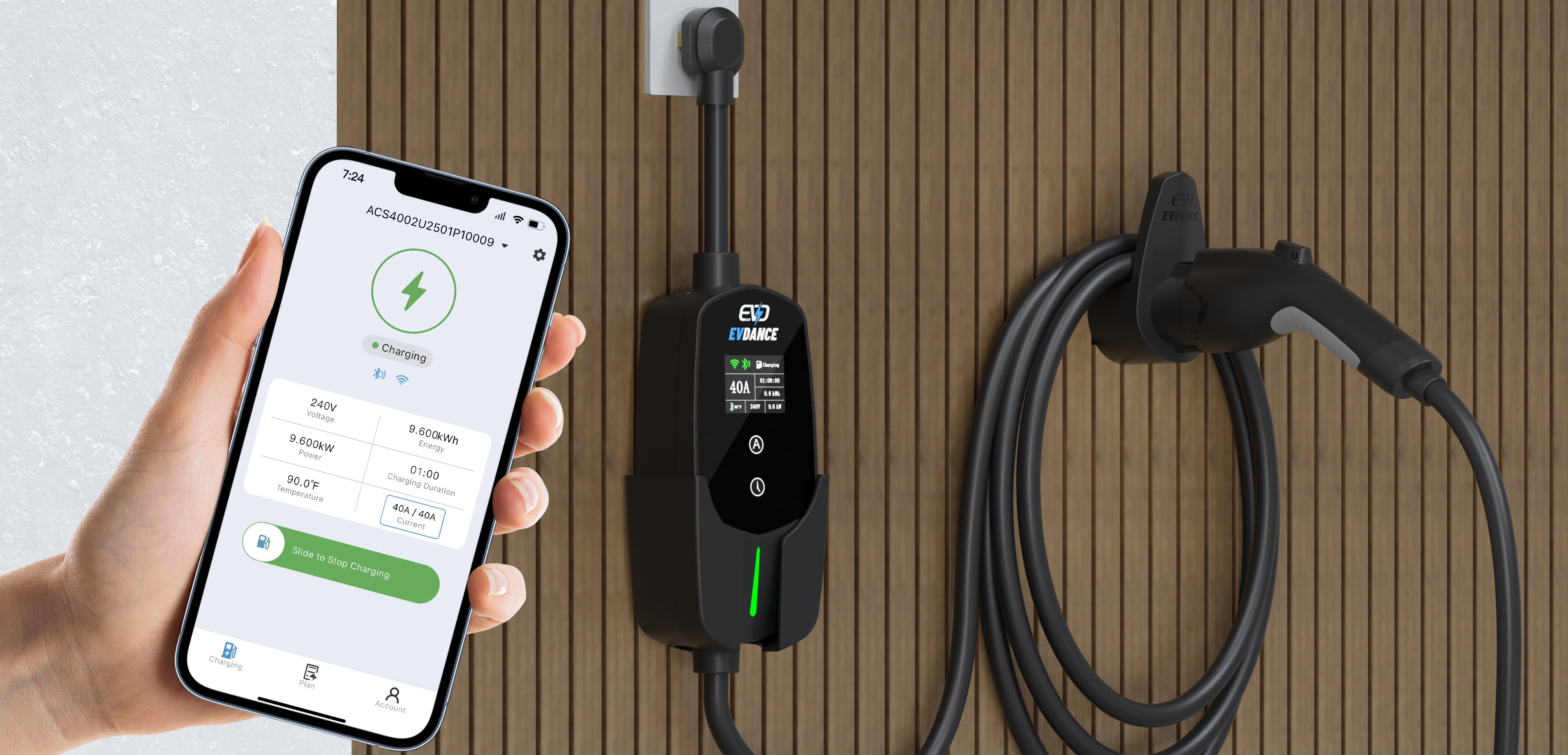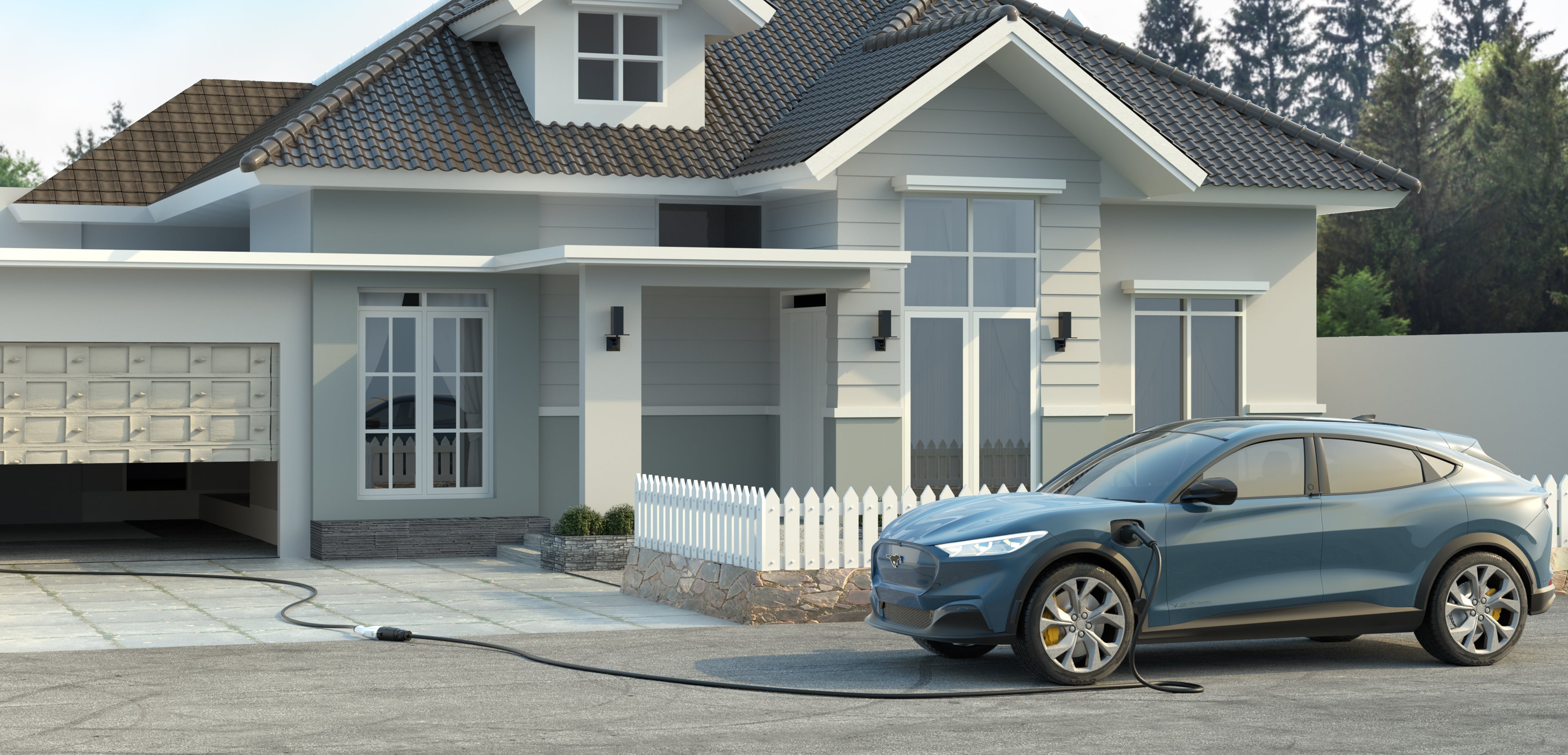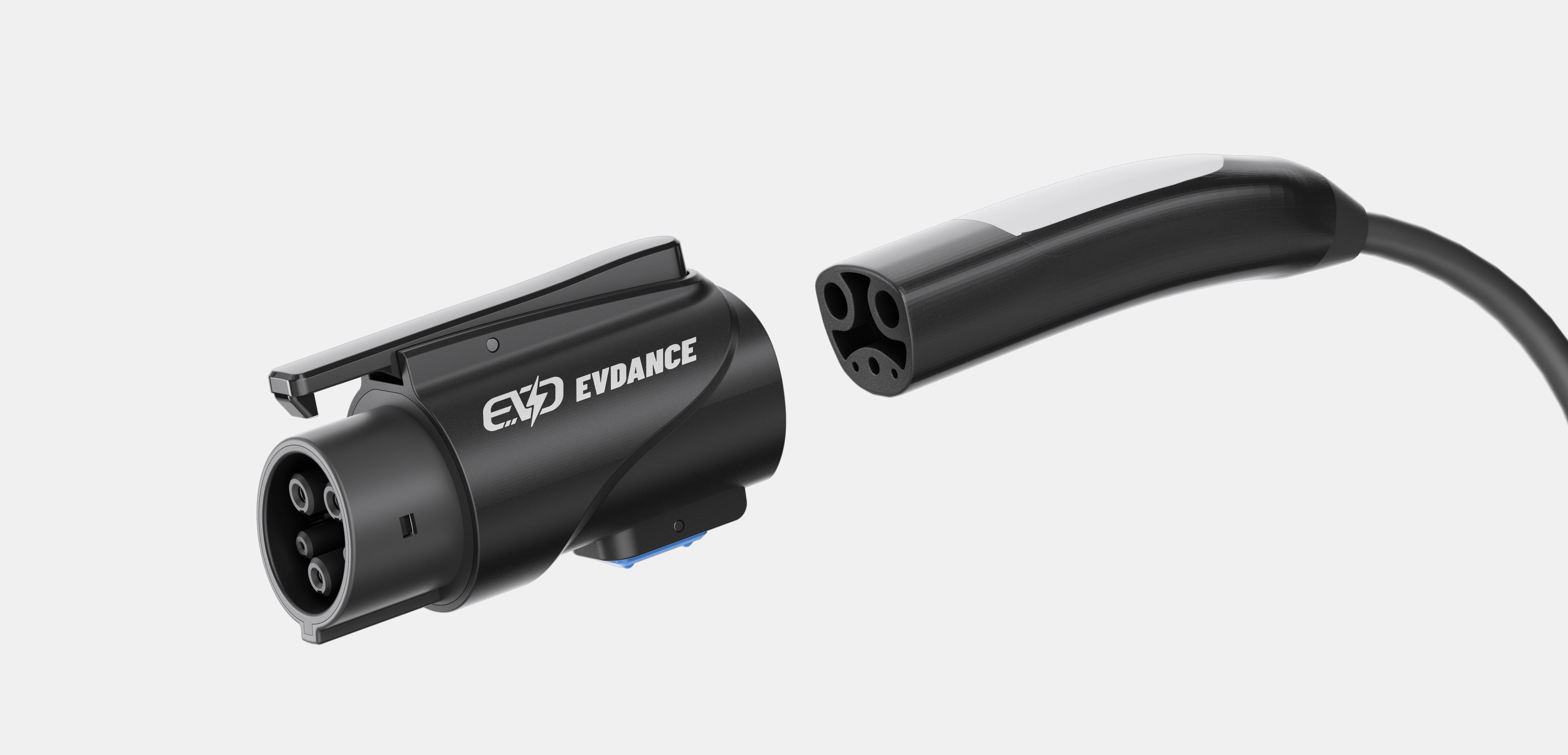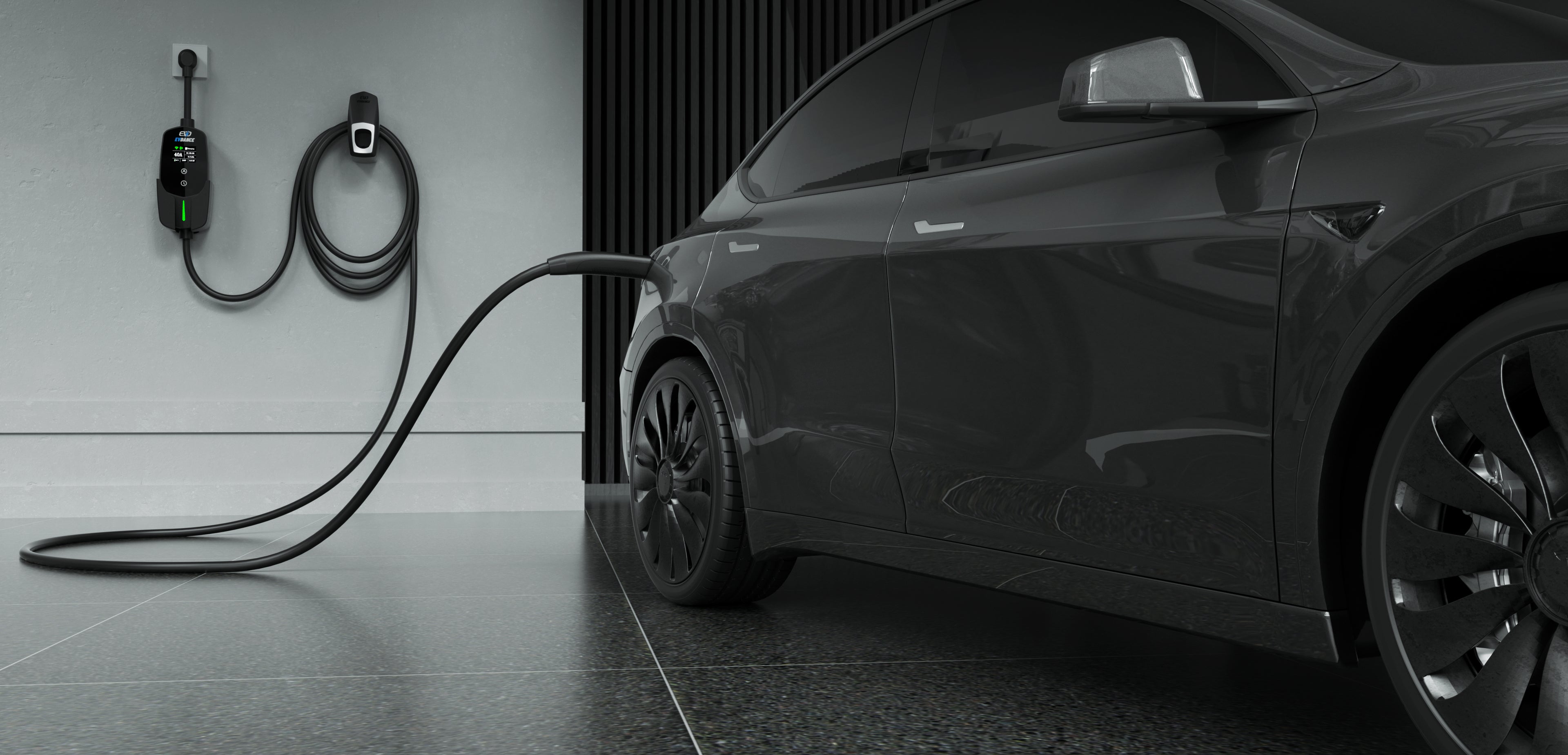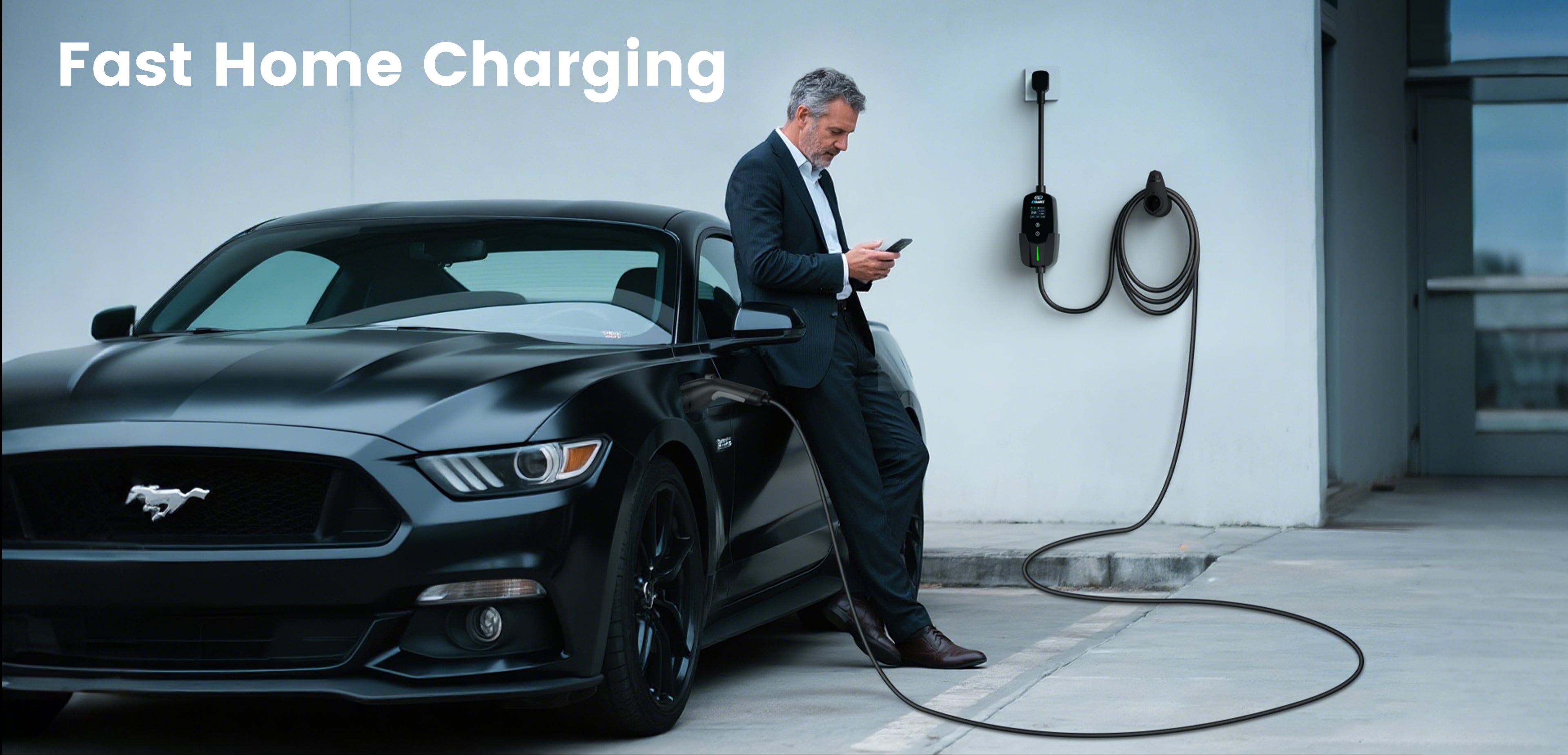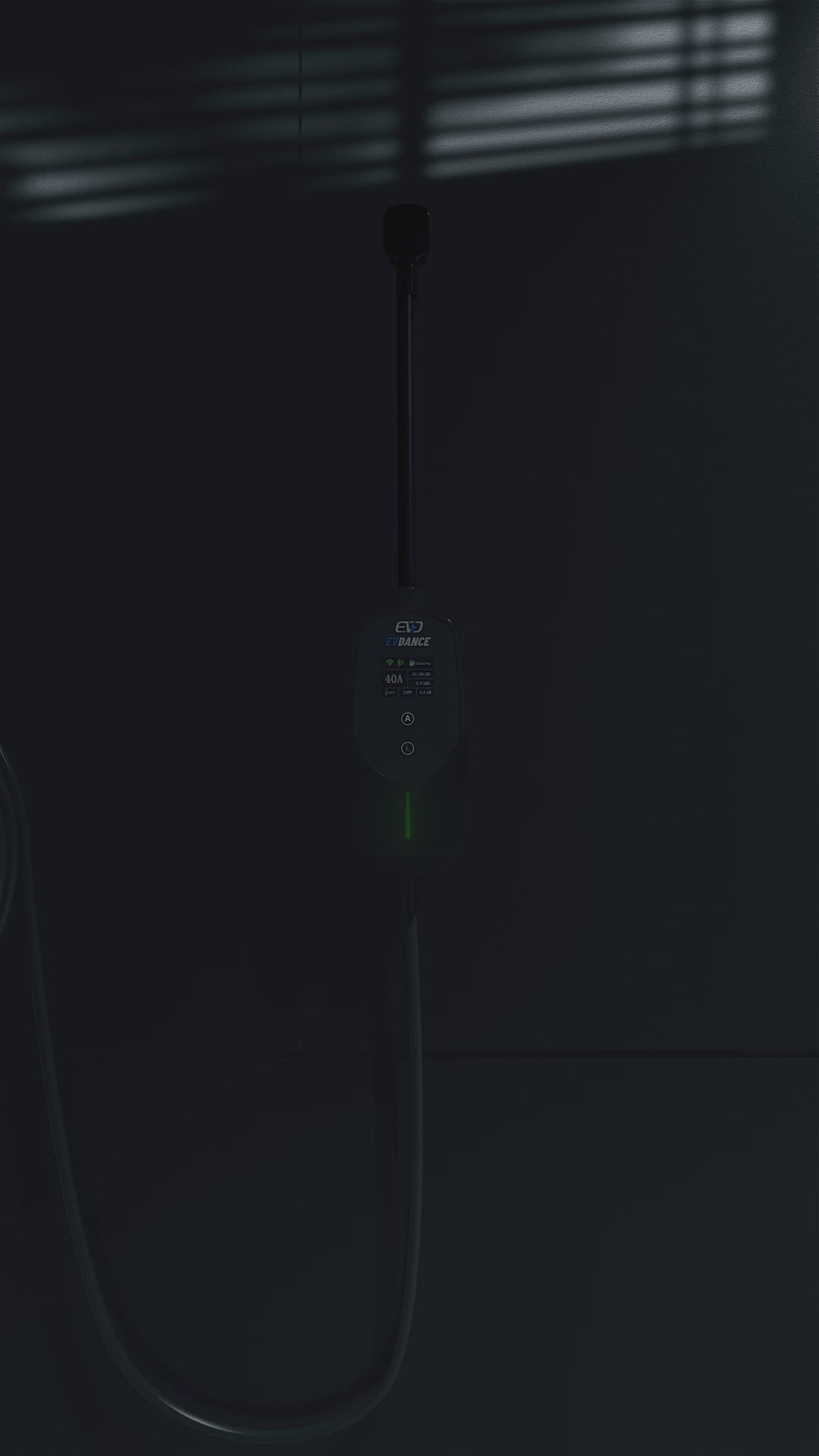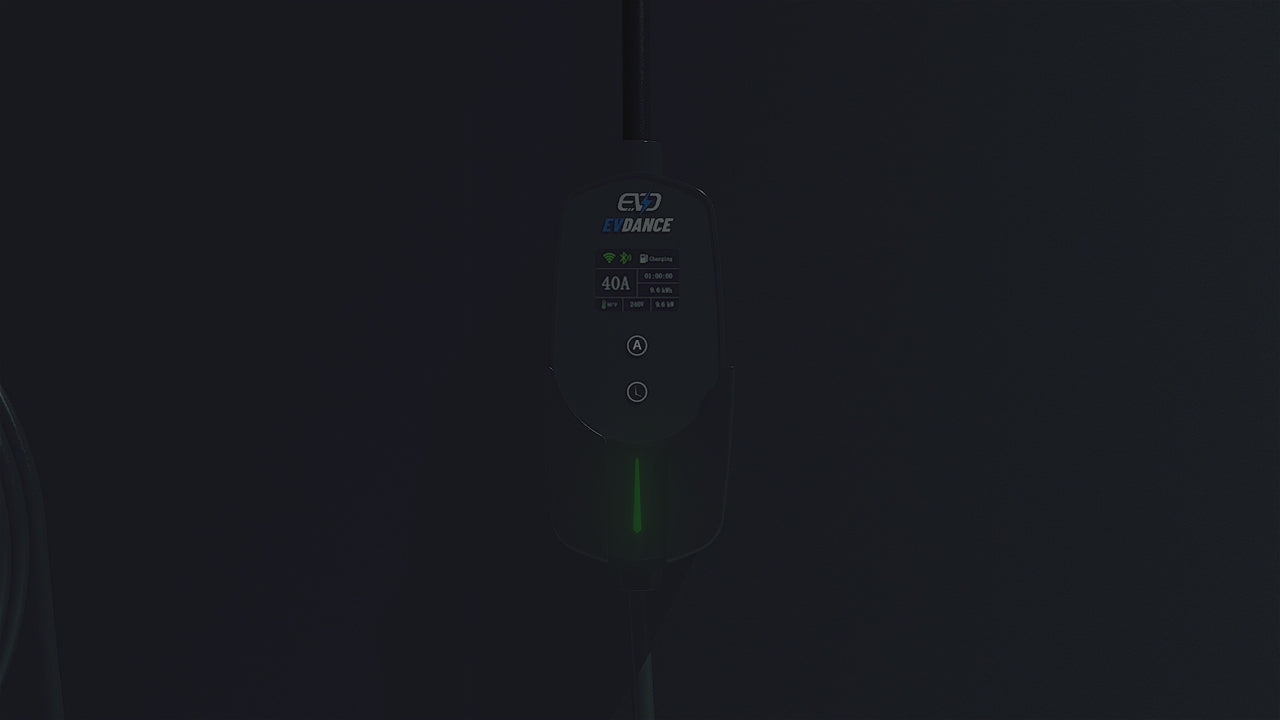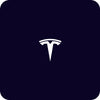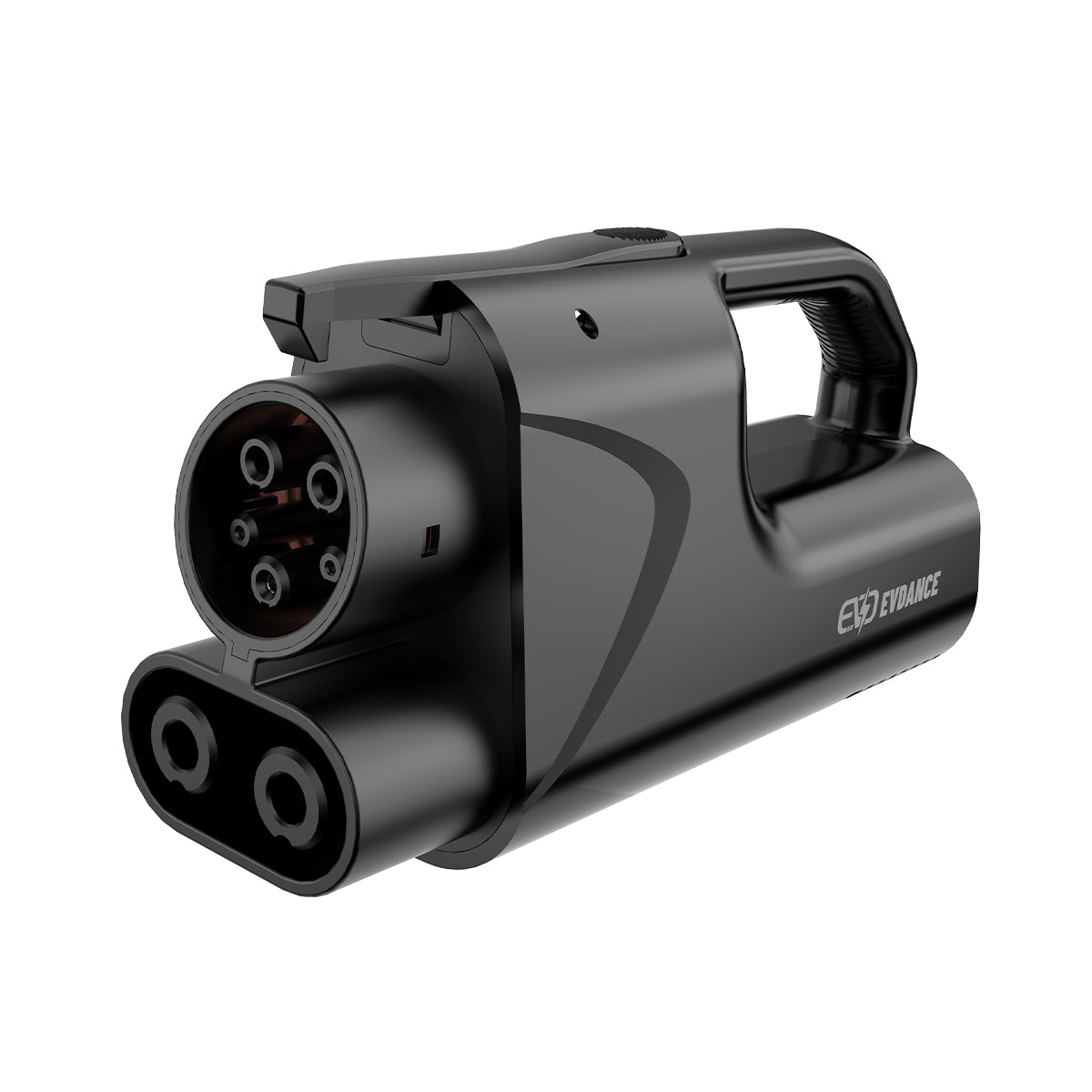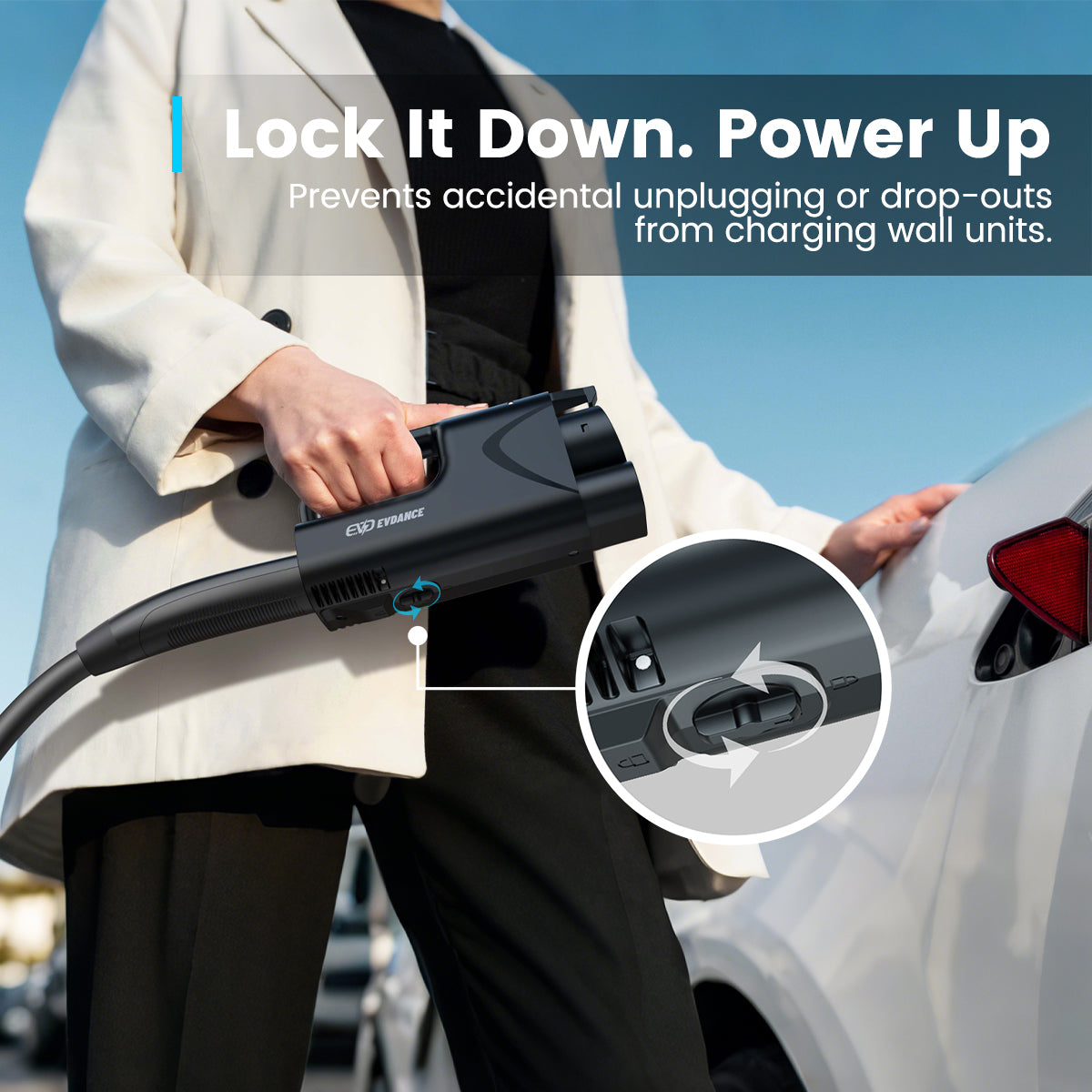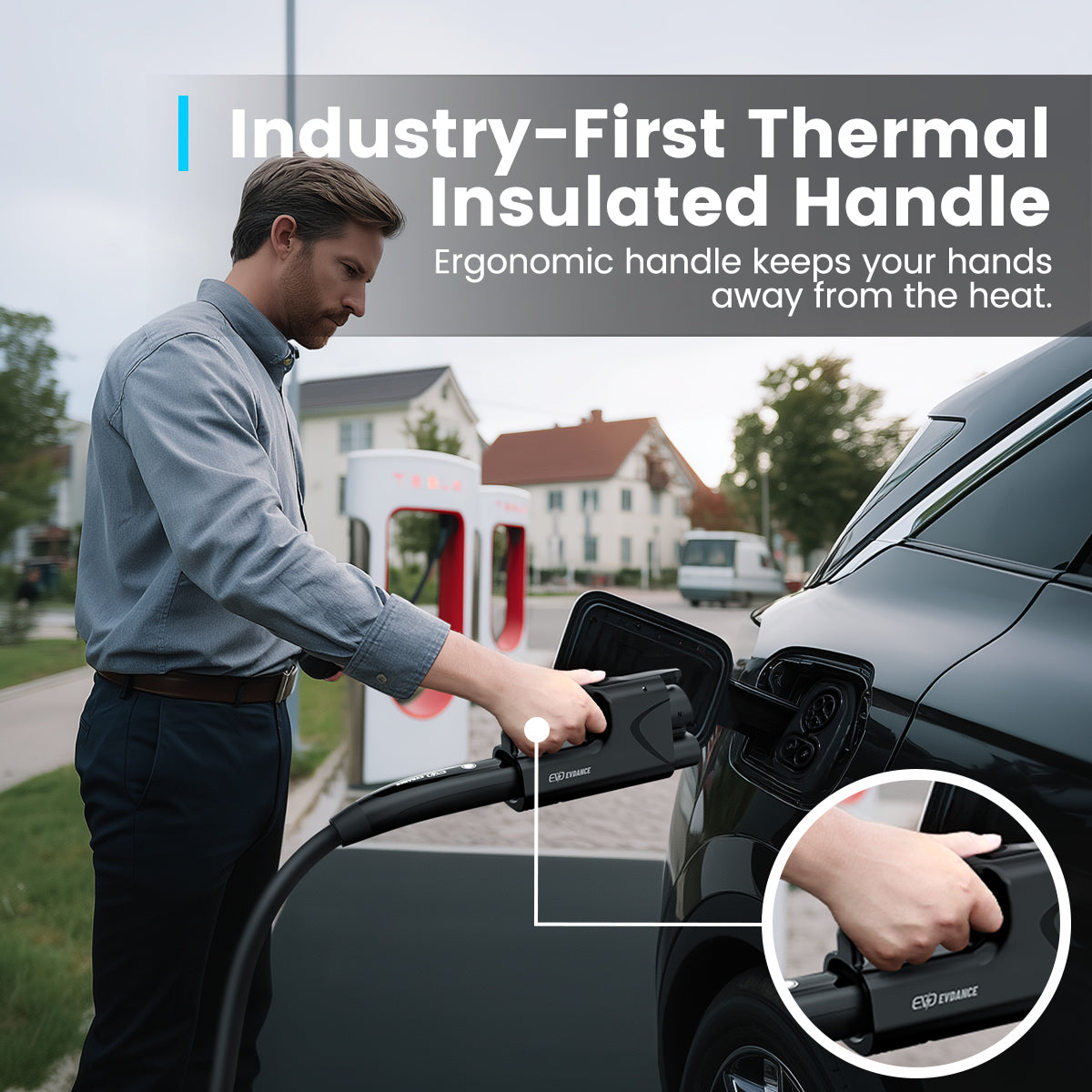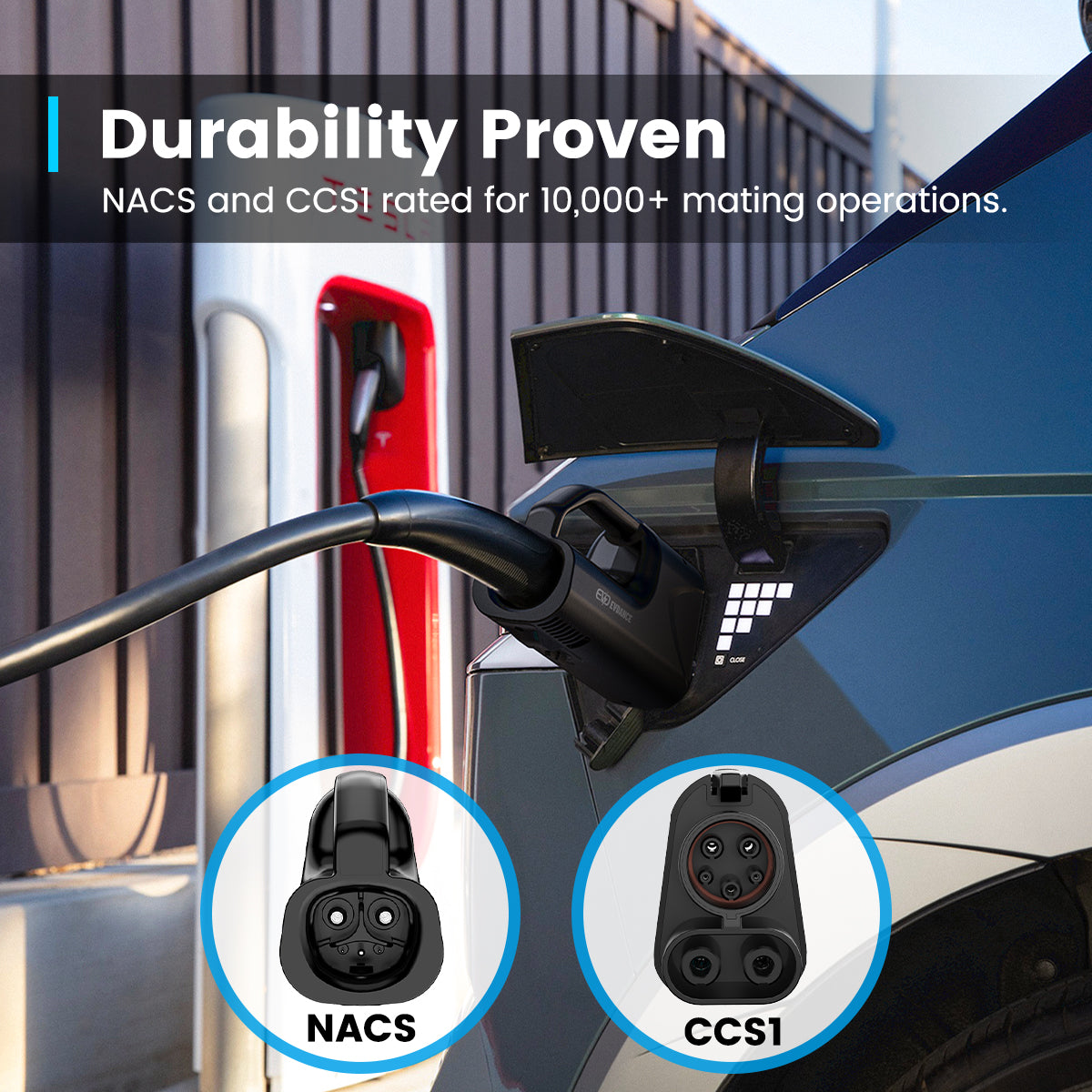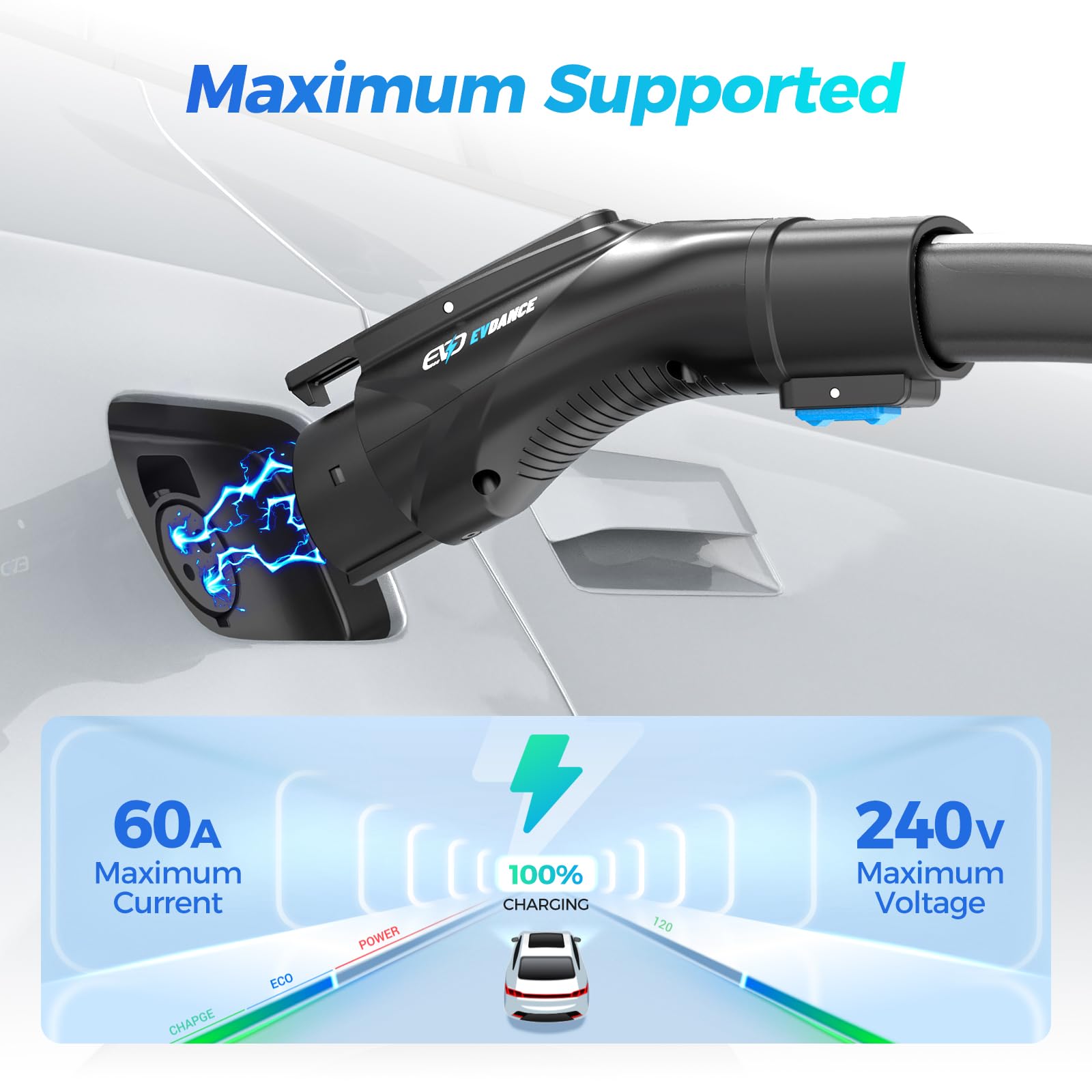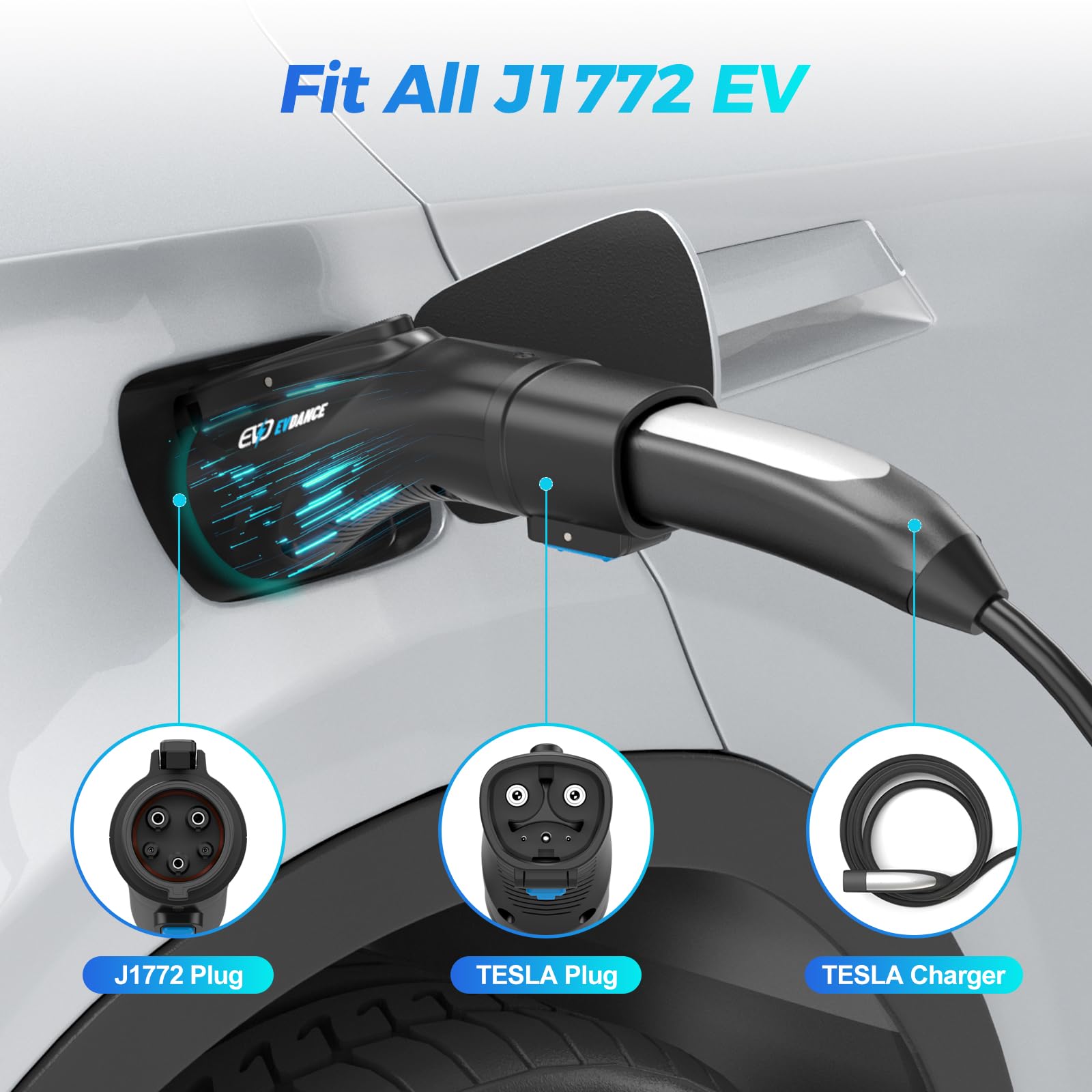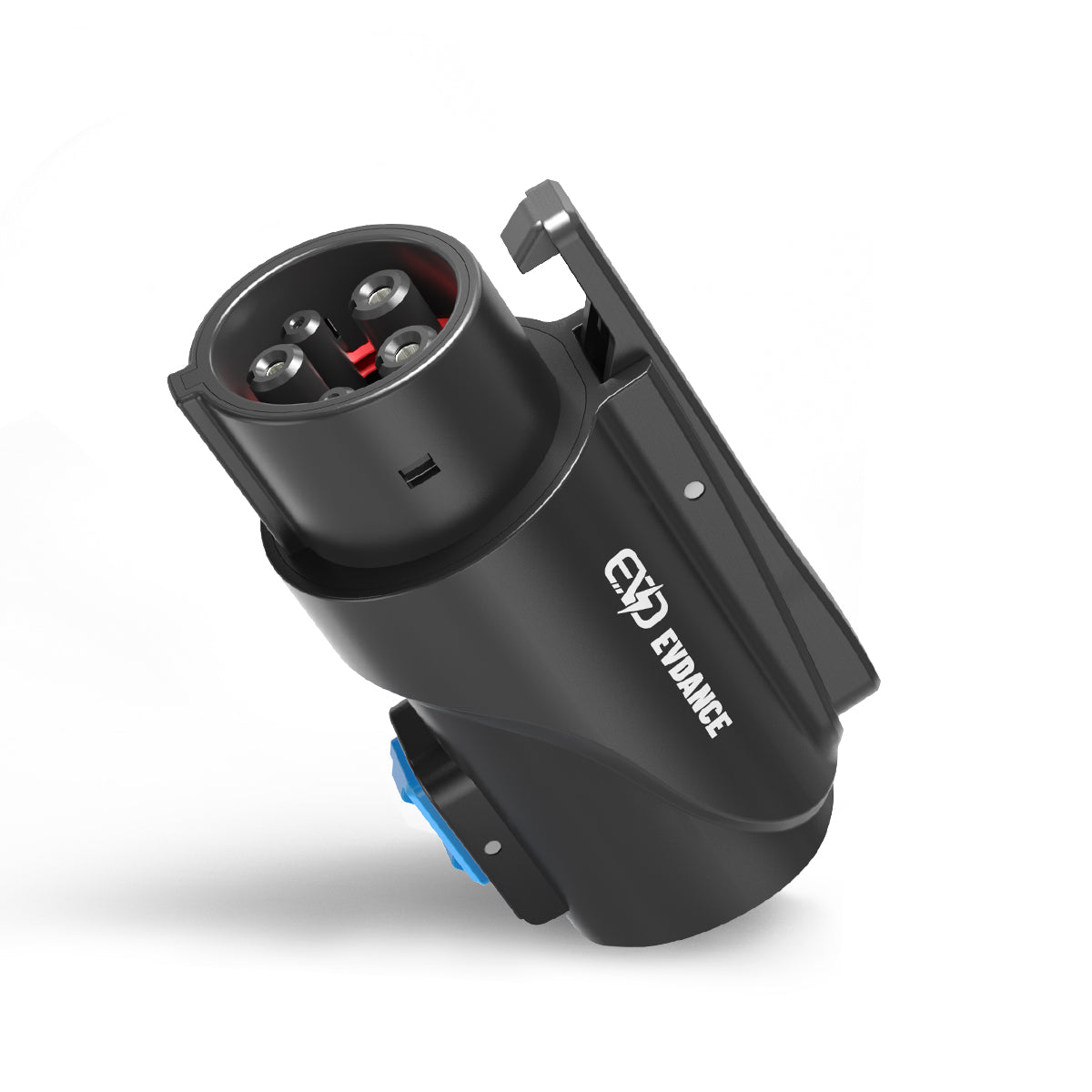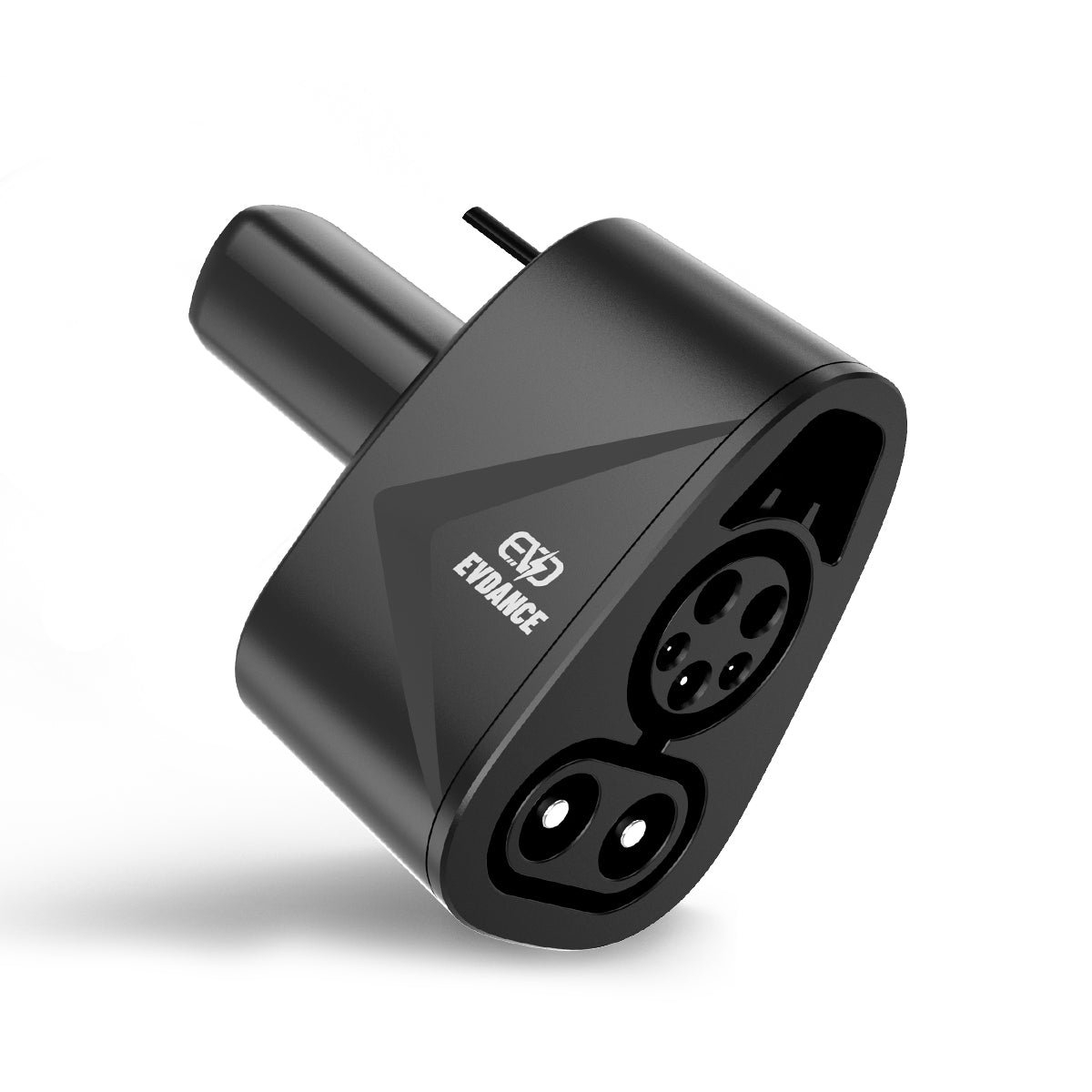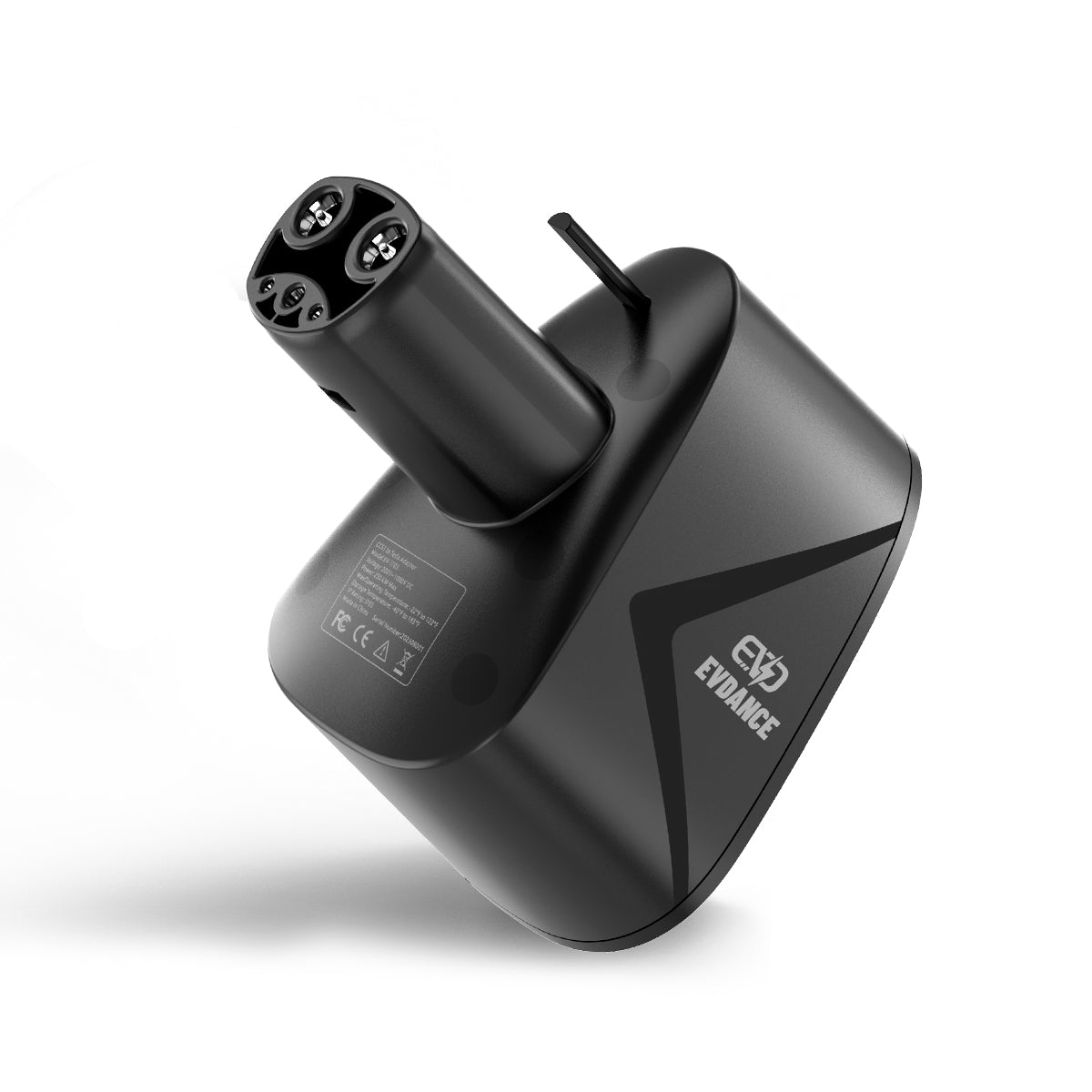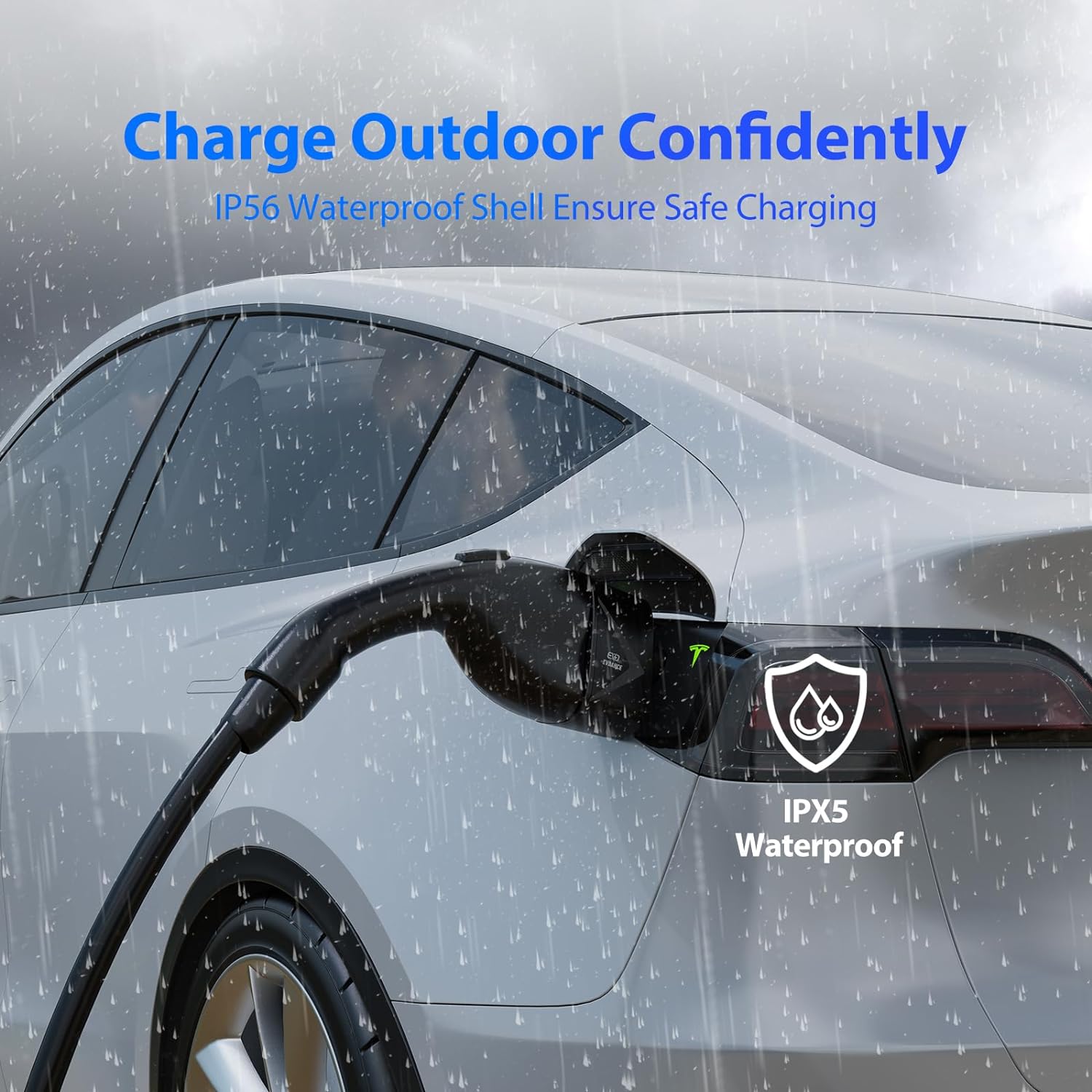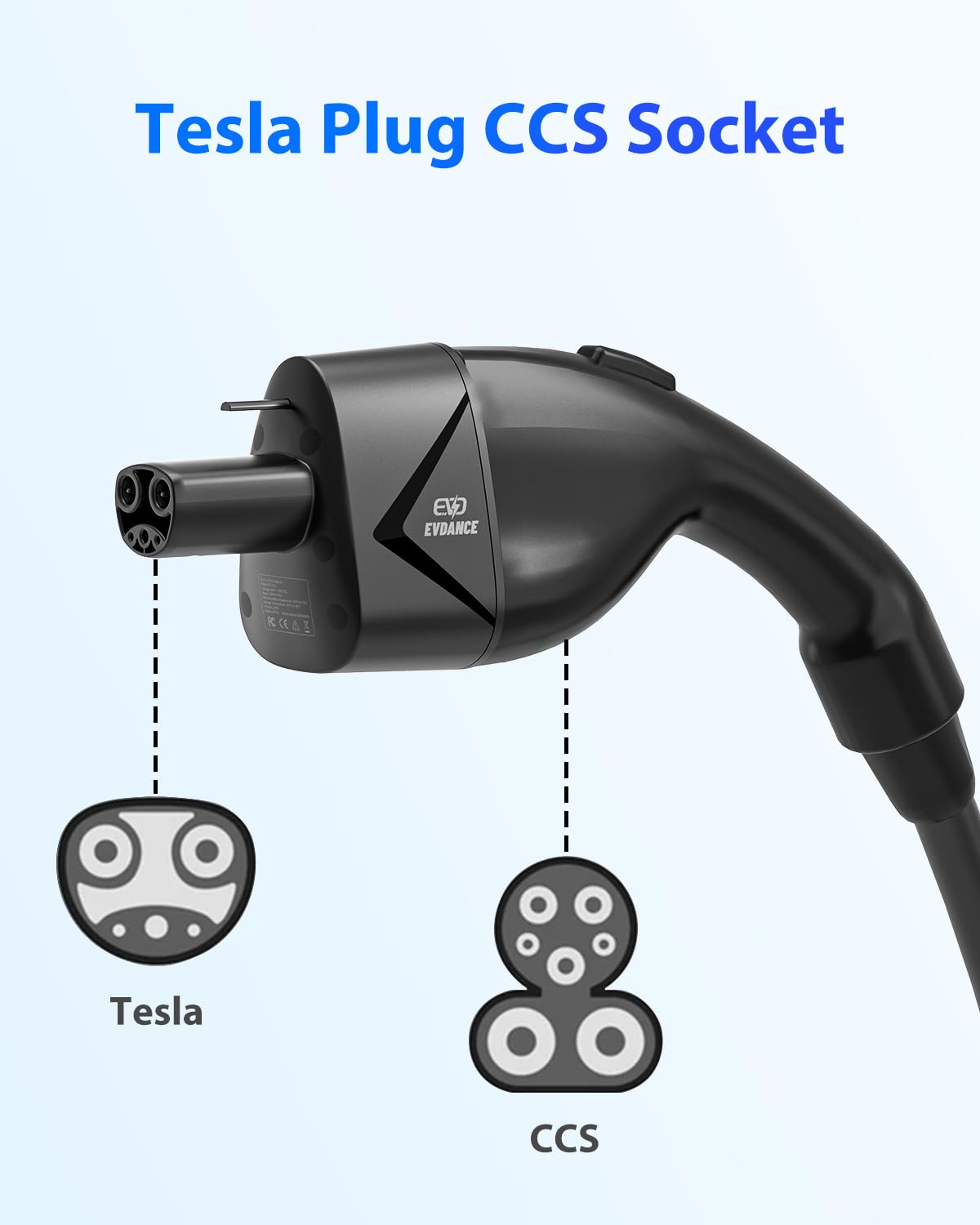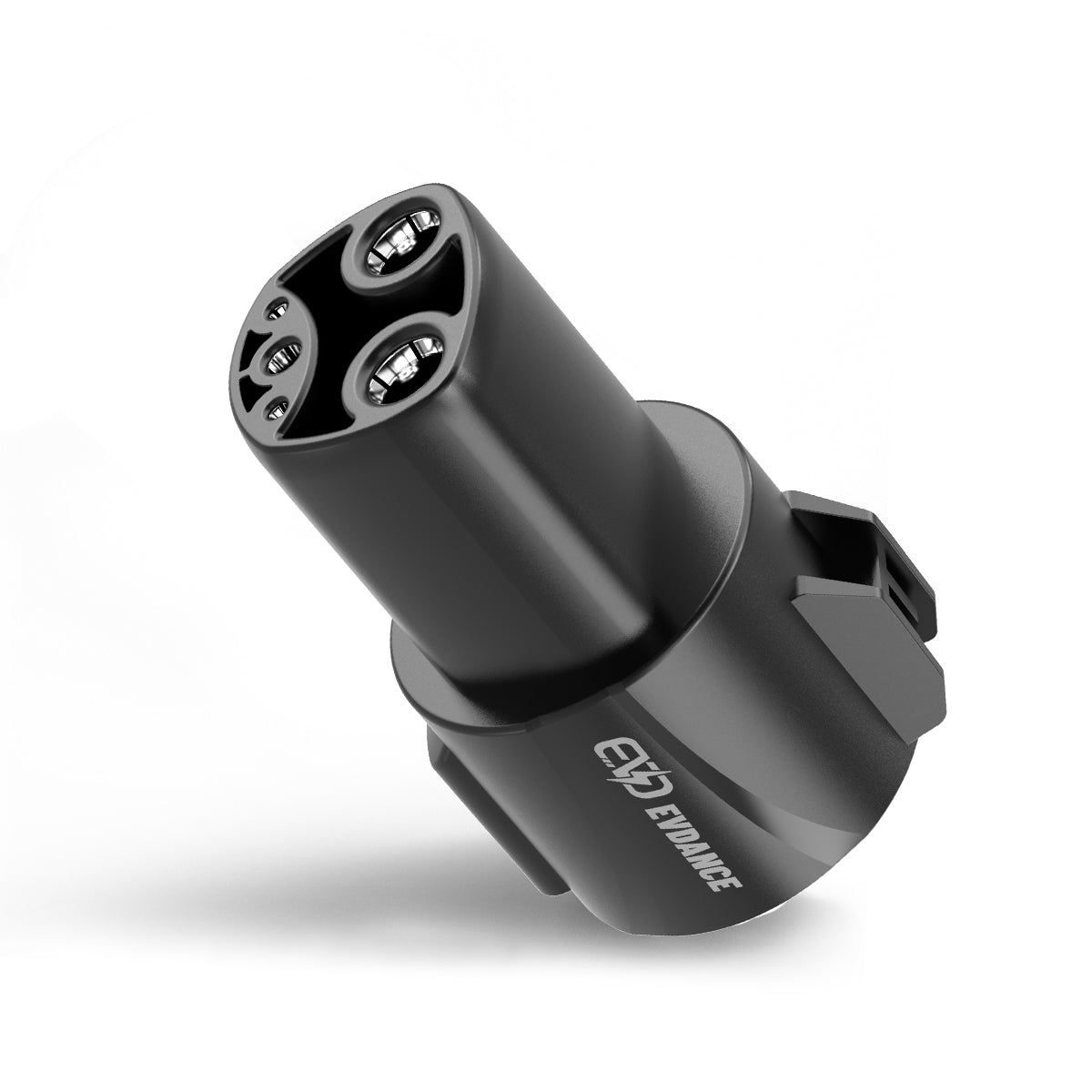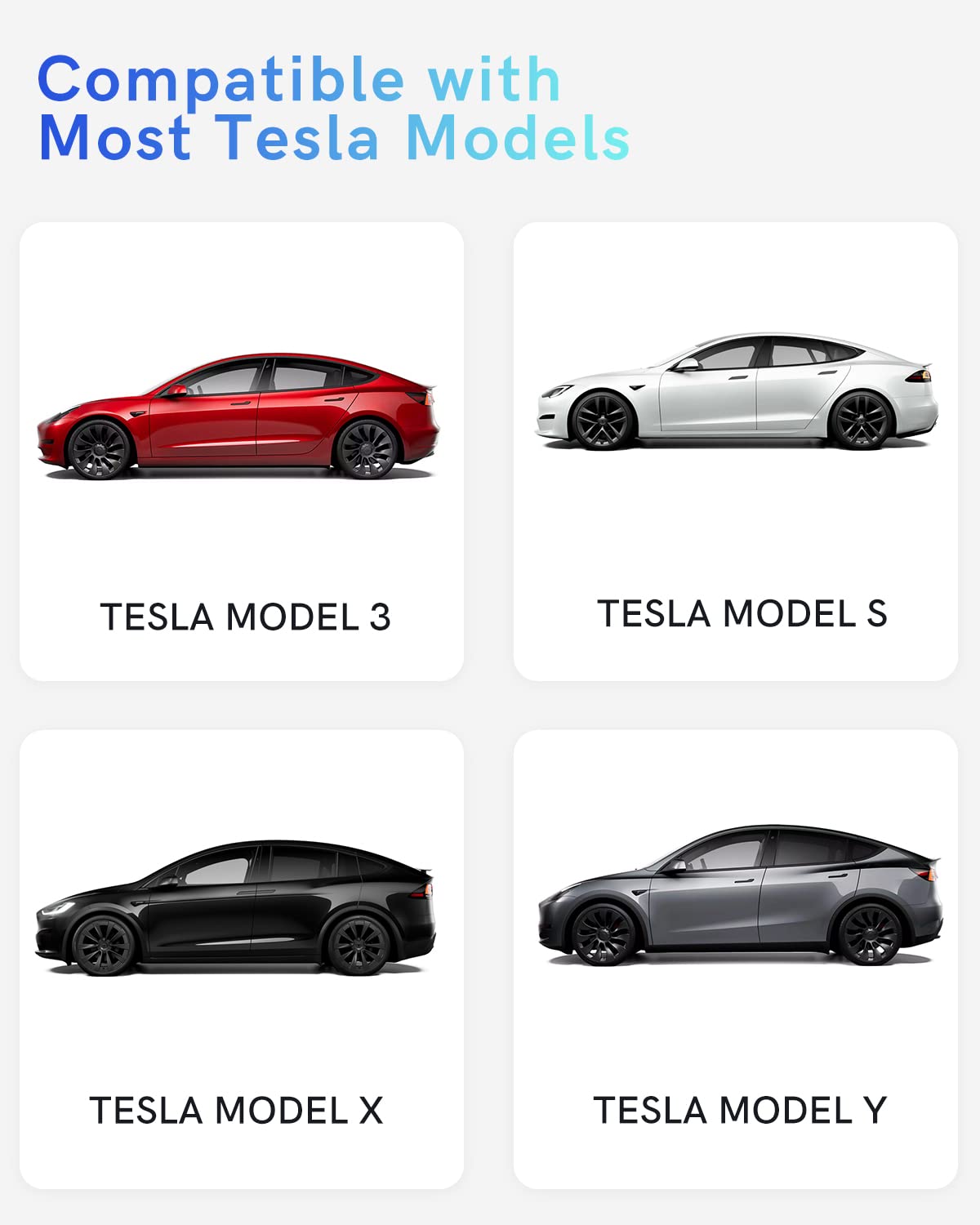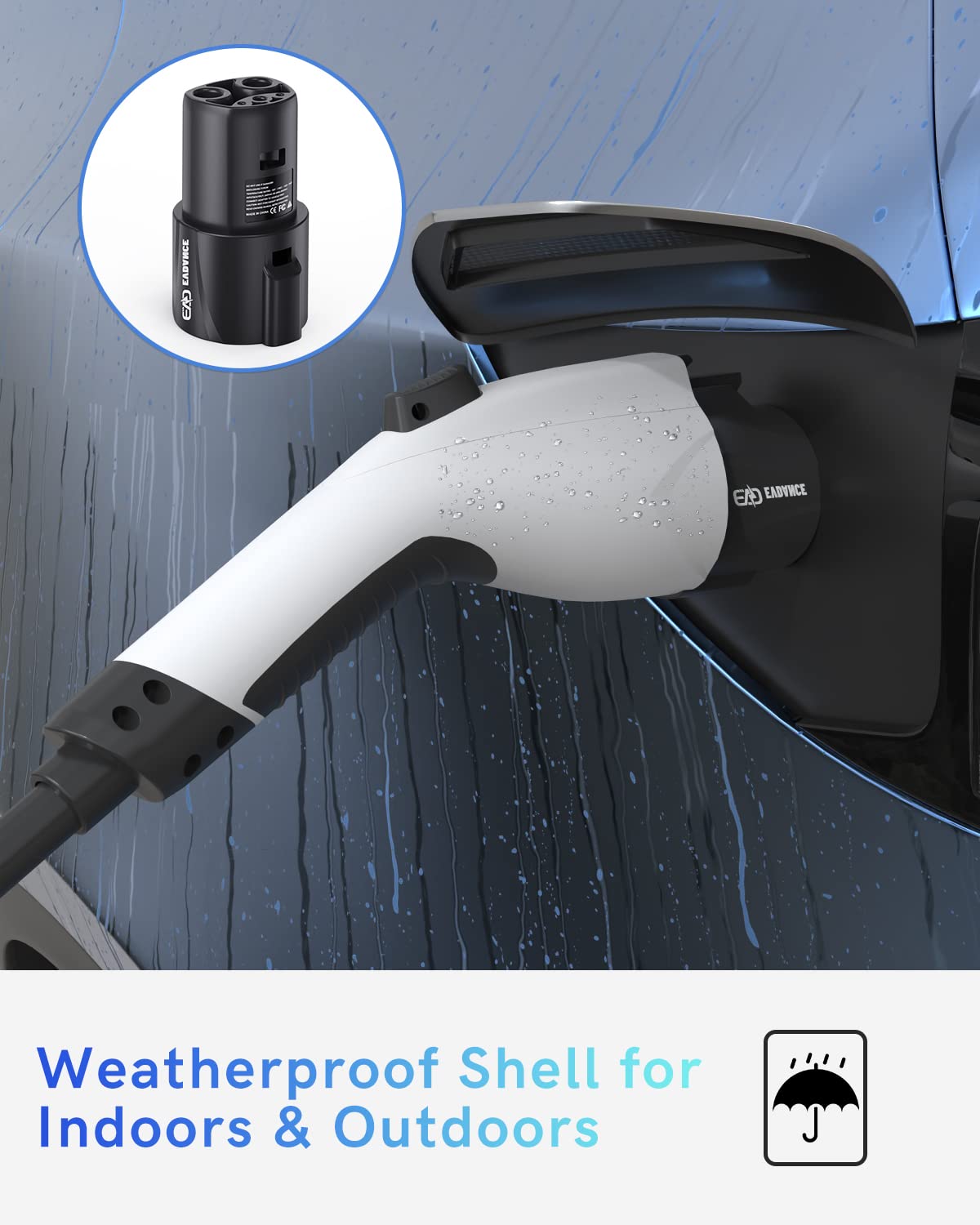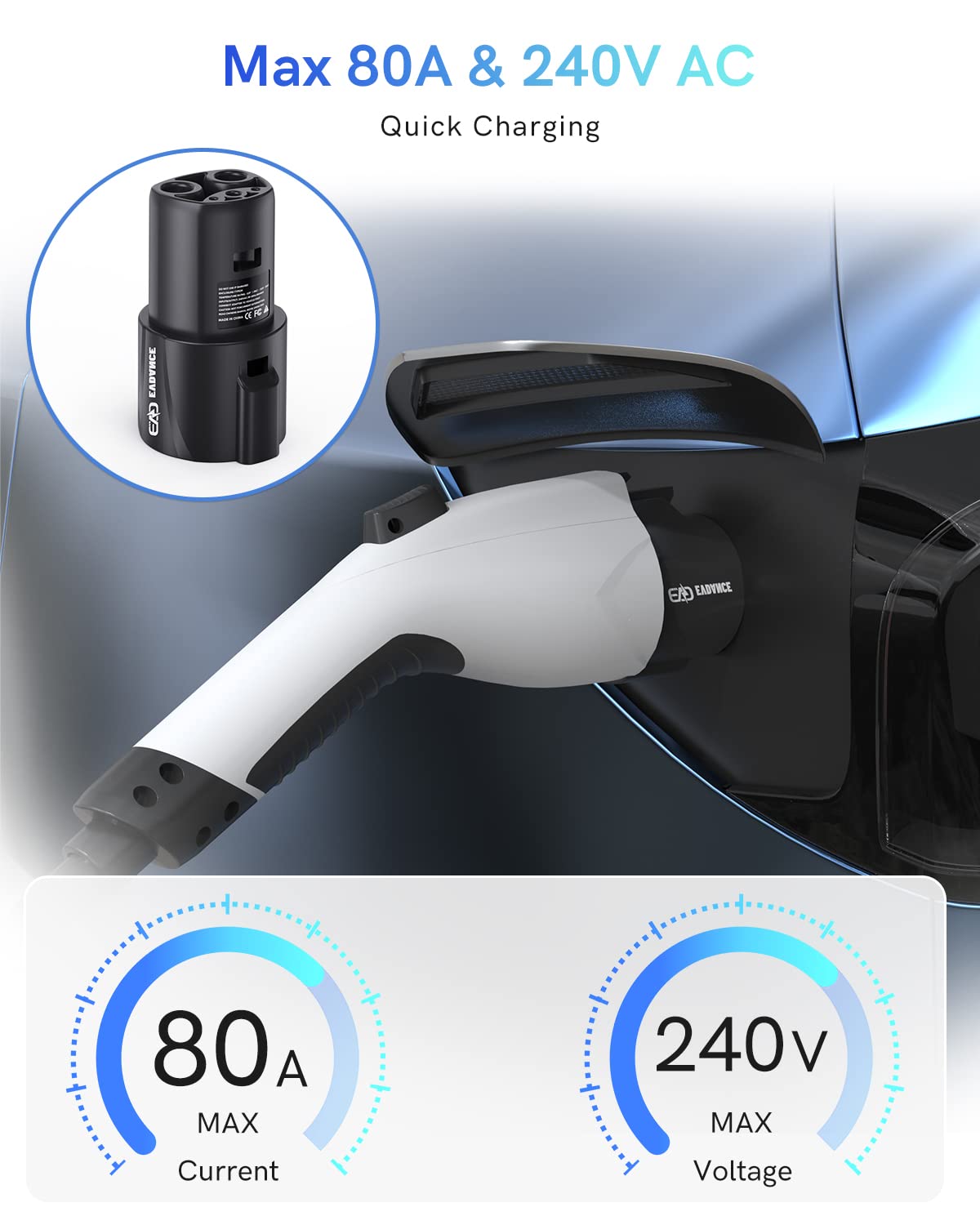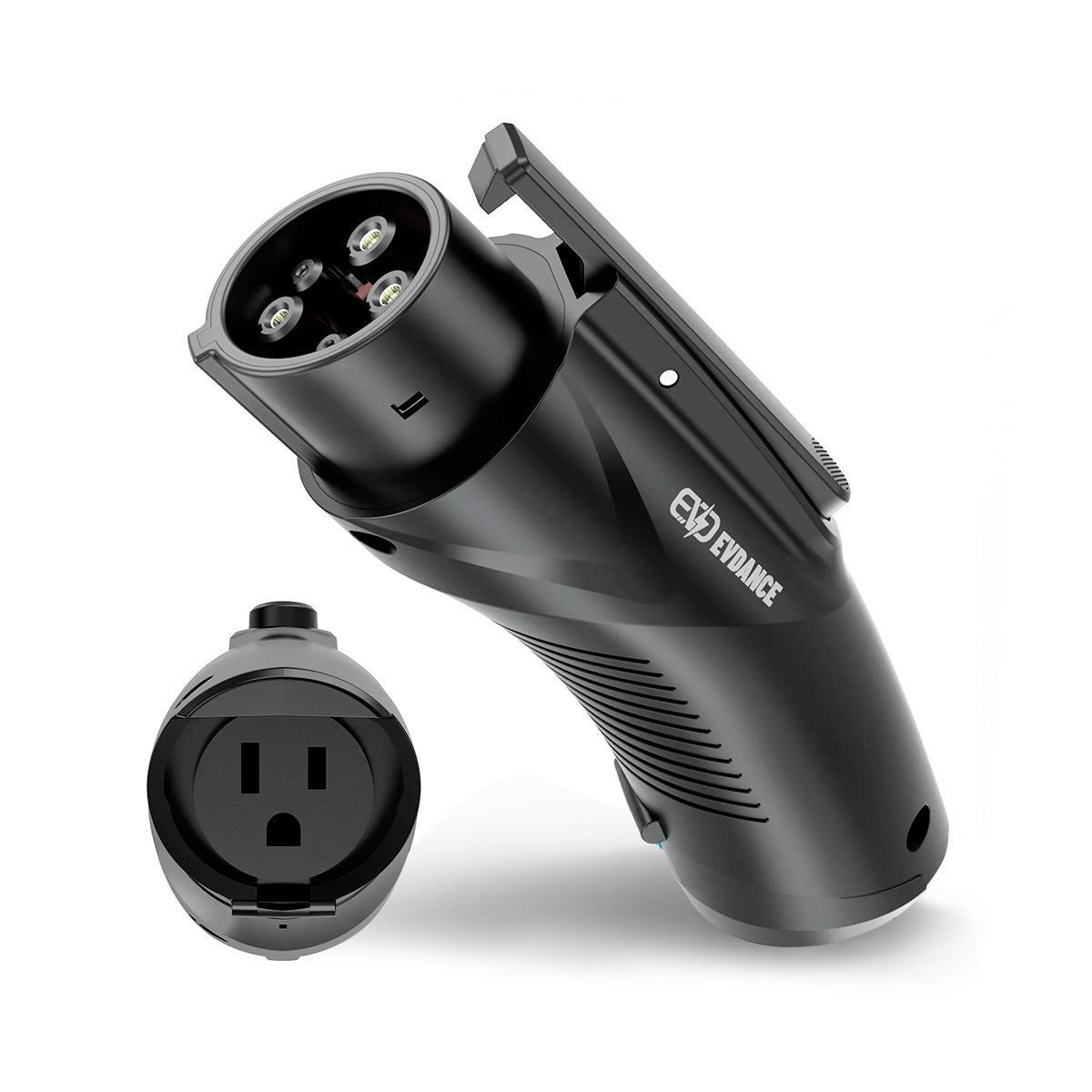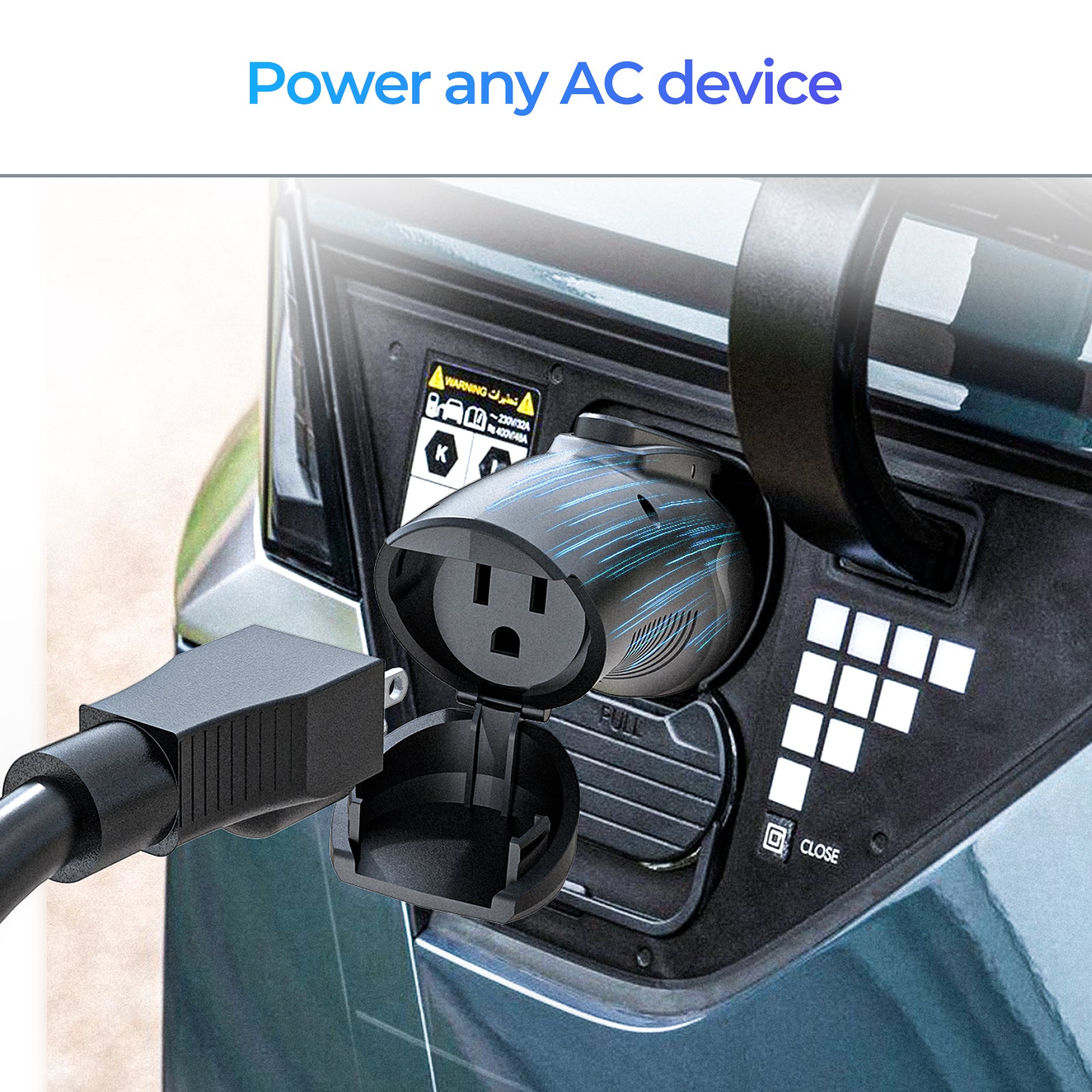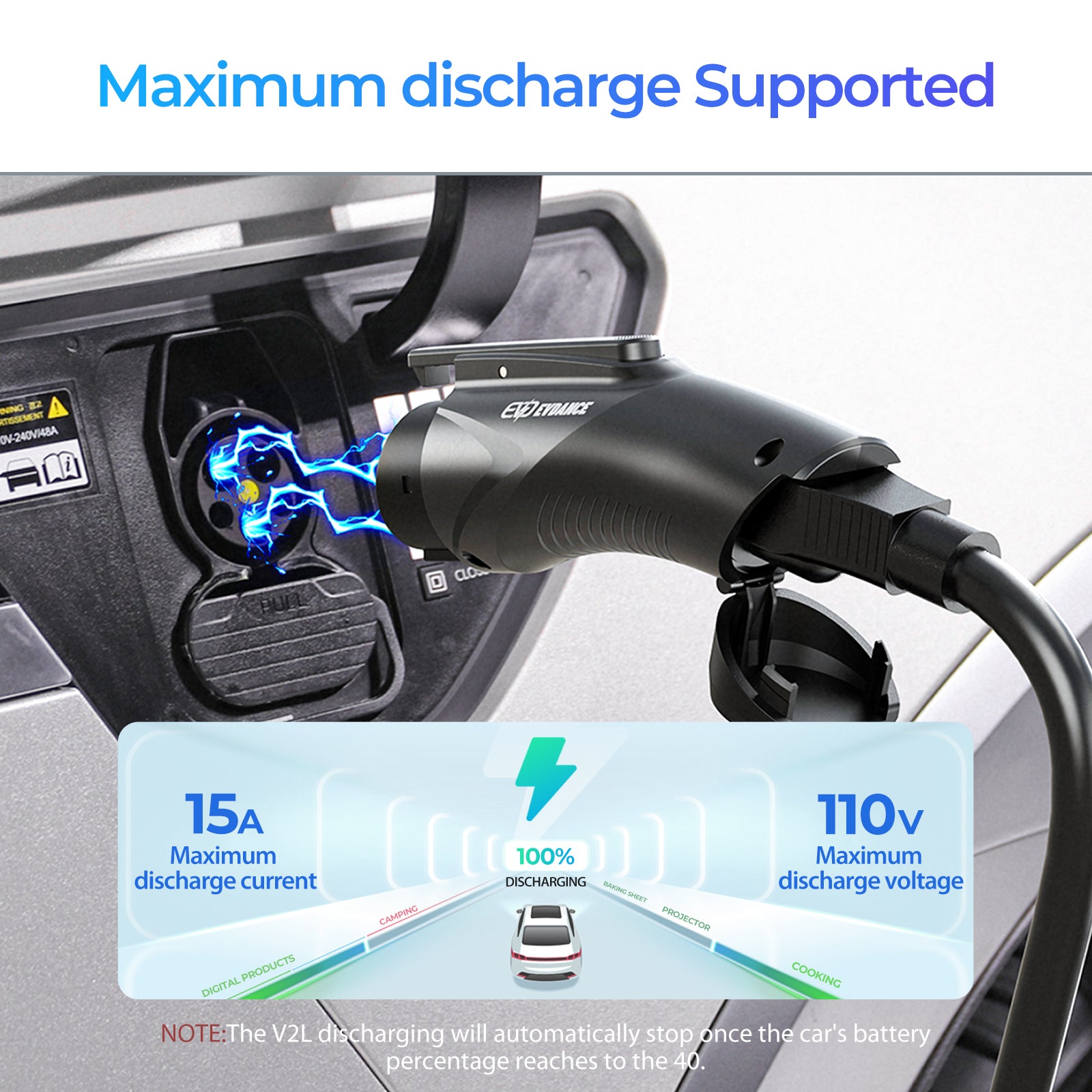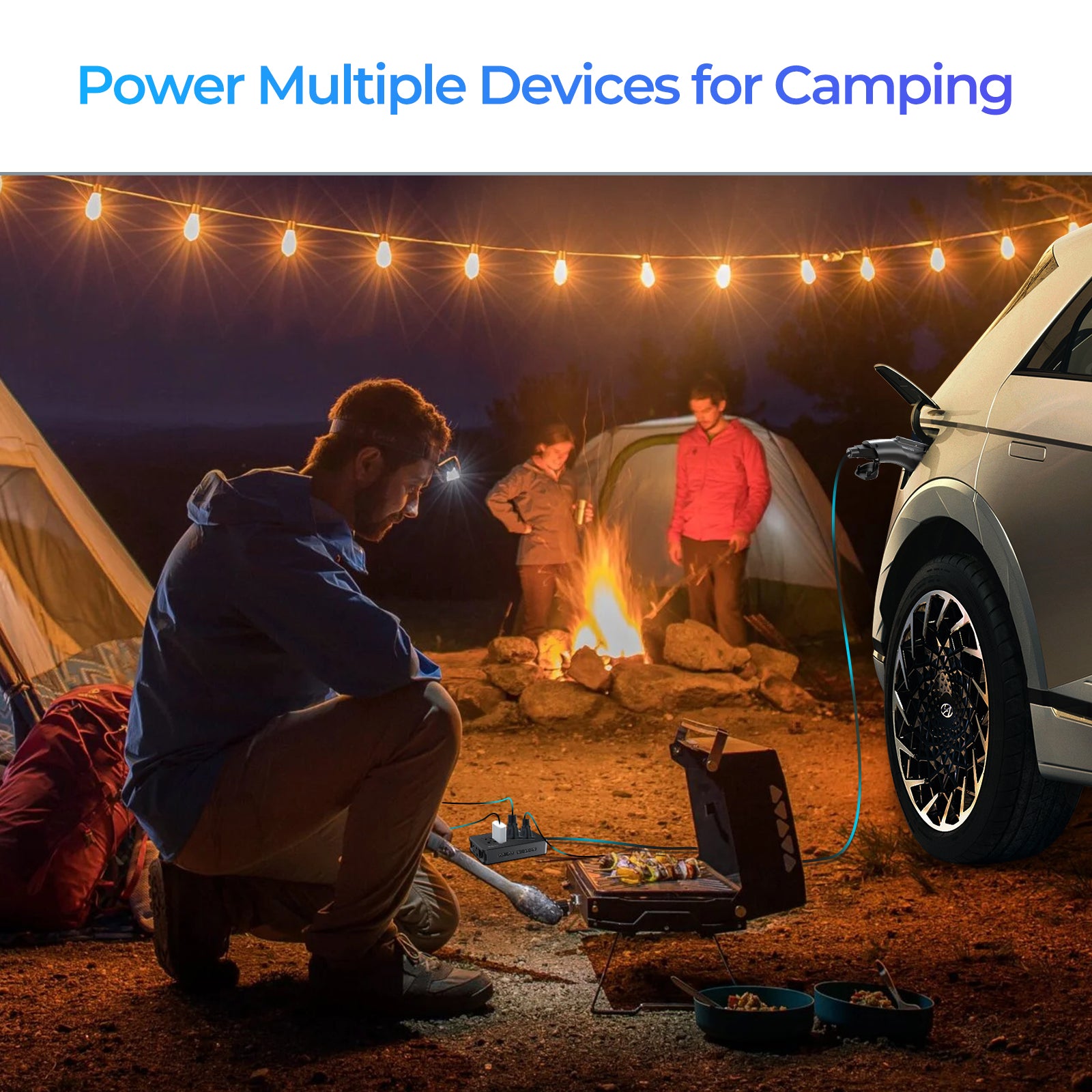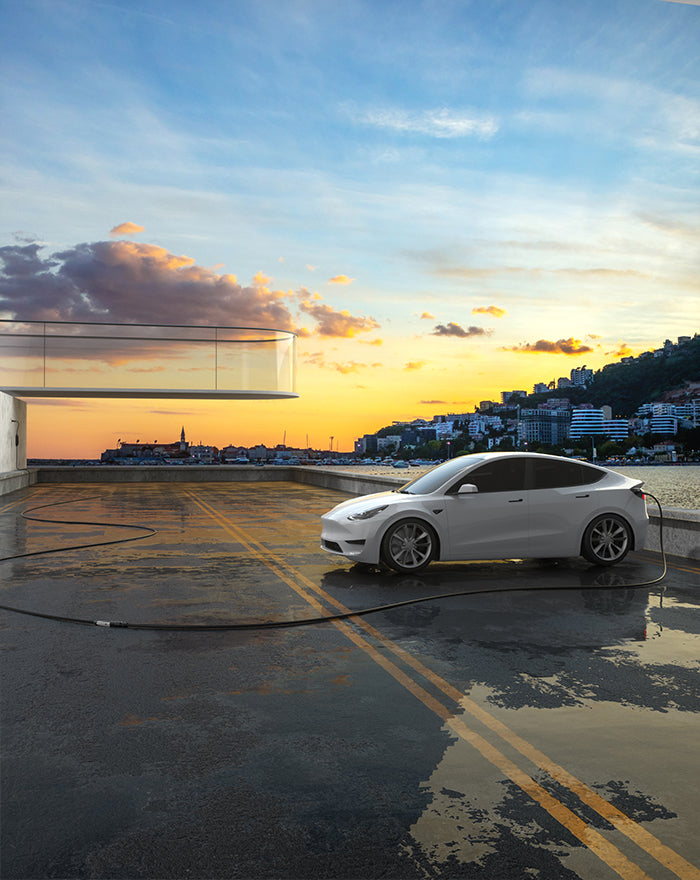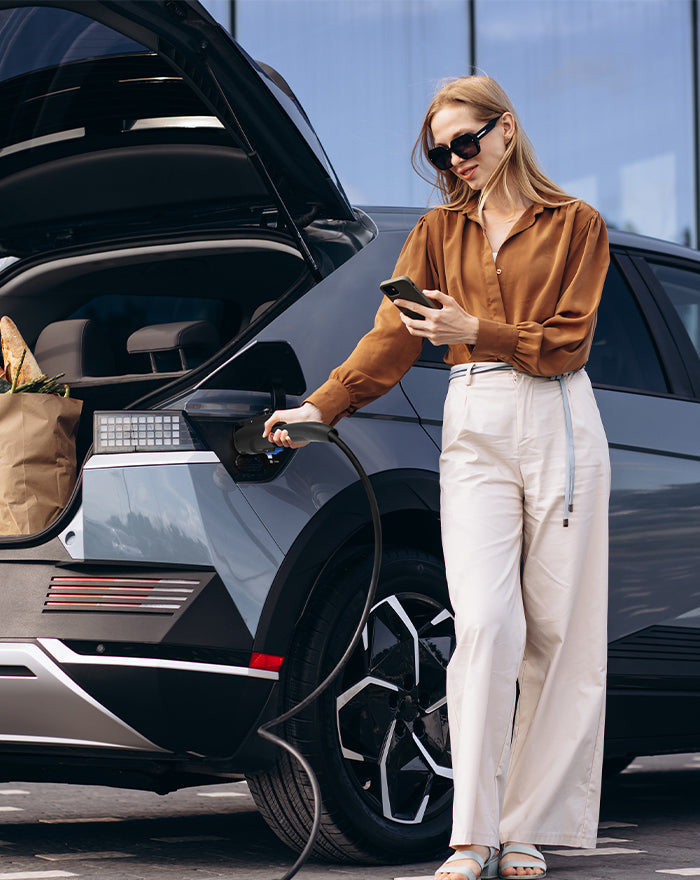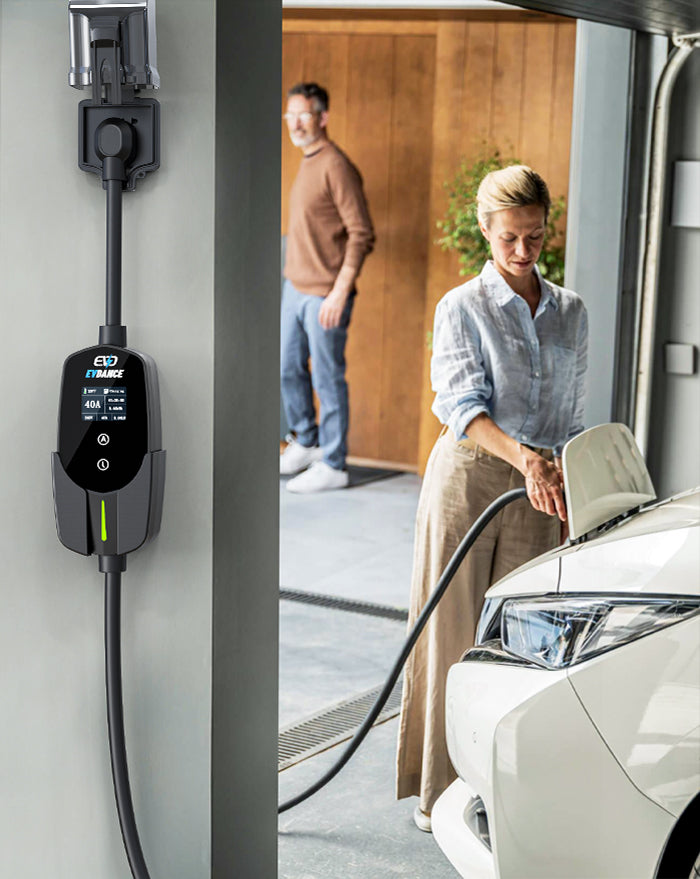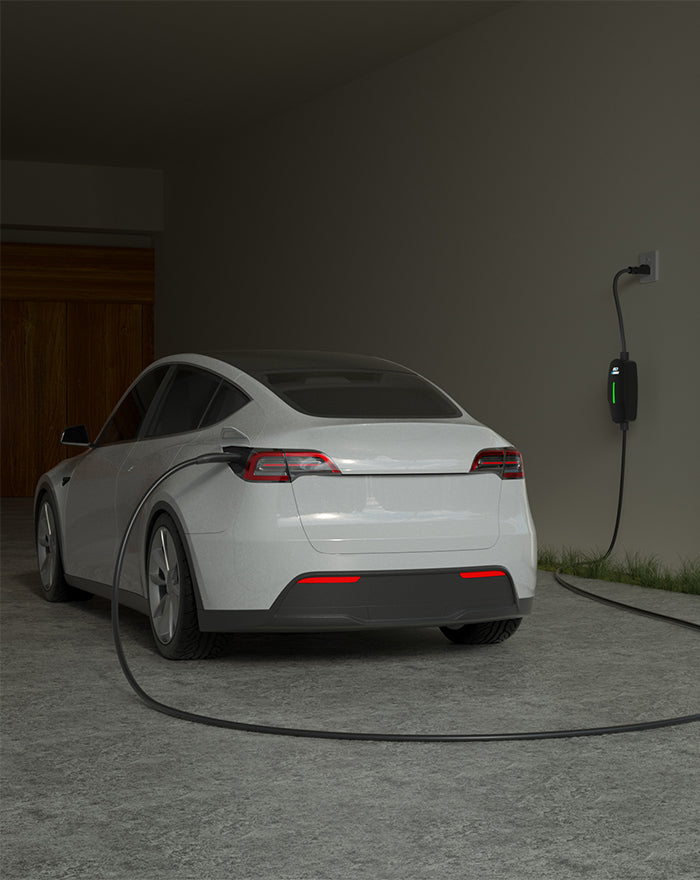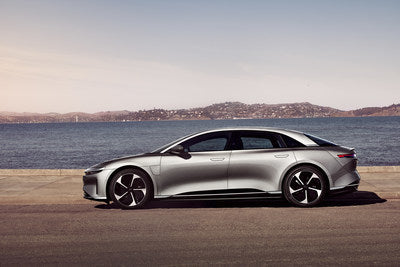AS SEEN ON
RECOMMENDED BY

Kim Java
If you go to a friend's house and their car is blocking the charger or the charger is in an awkward spot, or you're travelling just can't quite reach the charger, you can use the extra length that you need.

Robert Rosenfeld
Perfect solution for charging multiple cars without the hassle! Durable, reliable, and makes outdoor charging effortless. Exactly what I needed!

Walter Schulze
When you’re on a roadtrip going to a hotel that has an EV charger, the PlugShare says it's available and working, and when you get there it is ICEd. That's where EVDANCE Extension Cord comes into play.
EV Compatibility
Best Sellers
EVDANCE Pulse Fusion NACS DC To CCS1 Adapter
EVDANCE Tesla(NACS) to J1772 Charging Adapter with Security Lock
EVDANCE Mini Tesla(NACS) to J1772 Charging Adapter Max 80 Amp & 250V
EVDANCE CCS1 To NACS Adapter 250KW
EVDANCE SAE J1772 to Tesla Charging Adapter 80 Amp/ 240V
EVDANCE V2L Adapter for Hyundai Ioniq 5 & Ioniq 6,Kia EV6 15 Amp
EVDANCE
Charging Everywhere, Anytime
At home, on the road, or off the beaten path, our EV chargers, extension cords, and adapters ensure your electric vehicle stays powered in any situation.
Customer Support
Monday - Friday
24/7 Customer Support
1-Year Warranty
EVDANCE Covers A Period Of 12 Months From The Date Of Purchase.
Fast Free Shipping
Fast Free US & DE & CA Shipping 48 - 72 Hours
Secure Payment
On EVDANCE Your Payment Information Is Processed Securely
FAQ
What types of EV chargers are available and which one is right for me?
There are mainly three types of EV chargers: Level 1, Level 2, and DC Fast Chargers. Level 1 chargers use a standard household outlet and are best for overnight charging at home. Level 2 chargers require a 240V outlet and charge faster, making them suitable for both home and public use. DC Fast Chargers provide rapid charging and are commonly found in public charging stations.
How long does it take to charge an electric vehicle?
Charging time varies based on the charger type and the vehicle's battery capacity. Level 1 chargers can take 8-20 hours to fully charge, Level 2 chargers can take 4-8 hours, and DC Fast Chargers can charge up to 80% in 20-40 minutes.
What are the costs associated with installing an EV charger at home?
The cost of installing an EV charger at home depends on the type of charger, installation complexity, and local labor rates. Level 1 chargers generally cost less since they can use existing outlets, while Level 2 chargers may require electrical upgrades and can cost between $500 to $2,000 including installation. Incentives and rebates might be available to offset these costs.
Are there incentives or rebates for installing EV chargers?
Yes, many regions offer incentives and rebates for installing EV chargers. These can come from federal, state, or local governments, as well as utility companies. Incentives may cover part of the installation costs, provide tax credits, or offer rebates on the purchase of the charger. It's advisable to check local resources for specific programs available in your area.
What is the difference between a connector and a charger?
A connector refers to the physical plug that connects the EV to the charging station, while a charger is the entire system that delivers electricity to the EV. There are different connector types depending on the region and the charging standard, such as Type 1 (J1772) in North America, Type 2 (Mennekes) in Europe, and CHAdeMO or CCS for fast charging.
How do I apply for tax credits to offset my EV charger installation costs?
Want to learn how to claim a tax credit to offset the cost of installing an electric vehicle charger? See here. 2024 EV Tax Credit: The Best Way to Save on Your EV
Not Found Your Qustions?
Go to our QA Question Bank for more answers!
EV NEWS
Stay current with the latest breakthroughs, sales trends, policy updates, and industry shifts shaping the future of electric mobility. From EV startups to legacy automakers, this section delivers timely insights into the rapidly evolving world of electric vehicles—covering tech innovations, market performance, charging infrastructure, and more.
The New Volvo XC70: Long-Range PHEV With DC Fast Charging And V2L
The 2025 Volvo XC70 PHEV combines long-range efficiency with modern EV features. With up to 124 miles of electric range, 23-minute DC fast charging, and bidirectional V2L capability, it offers a practical bridge between fuel and electric driving, designed to meet global demand.
Porsche Cayenne EV Debuts with Record-Breaking 400 kW Charging Power
Porsche is finalizing its first electric Cayenne, built on the 800V Premium Platform Electric. Equipped with a 108 kWh battery, it delivers over 373 miles of range and charges from 10–80% in just 16 minutes at up to 400 kW. Three dual-motor AWD trims—400 hp, 600 hp, and 805 hp—combine SUV utility with Porsche’s hallmark performance. Deliveries start next year, alongside updated gas-powered models.
Breaking Down Trump’s Trade Deal Twist: Could Unified Standards Reshape America’s EV Market?
The Trump Administration’s trade policies are creating turbulence in the global auto market, but talks with the EU hint at a game-changing shift—aligning vehicle standards. If realized, this could unlock smaller, affordable European EVs for U.S. buyers, widening consumer choice despite regulatory and political roadblocks.
Changan’s 930-Mile EV Sets New Benchmark — Is Tesla Losing Its Edge?
Changan has unveiled a new EV capable of traveling 930 miles on a single charge, enabled by a 400 Wh/kg solid-state battery — more than twice the energy density of traditional lithium-ion cells. Safety, weight reduction, and fast charging are major benefits. With prototypes due by 2025 and mass production starting 2027, this breakthrough could reshape global EV competition and challenge Tesla’s dominance.
Hyundai and Kia Surge Ahead in the US with EVs Driving Record Sales
Hyundai and Kia have sold over 1.5M eco-friendly cars in the US, with EVs and hybrids driving record growth. Strong sales of the Tucson Hybrid, IONIQ 5, and Niro Hybrid, plus new Georgia-made models, are set to fuel even faster expansion.
Porsche Reconsiders Virtual Gear Shifts for EVs After Initial Pushback
Porsche, once dismissive of fake gear shifts in EVs, is now experimenting with an eight-speed virtual transmission and V8 sound simulation in the upcoming Cayenne EV. Engineers have tuned the system to feel almost authentic, giving drivers a choice between silent efficiency and a more engaging, mechanical-like experience.





